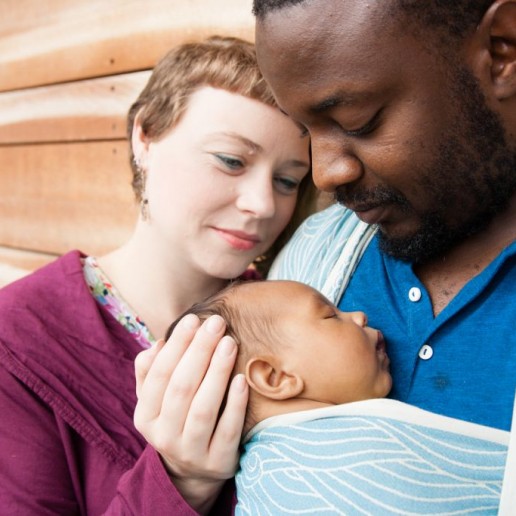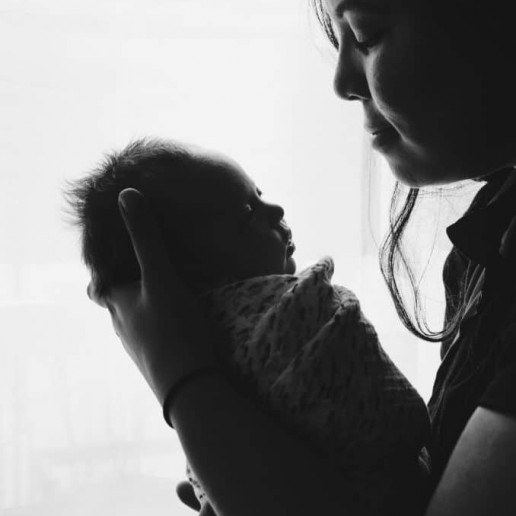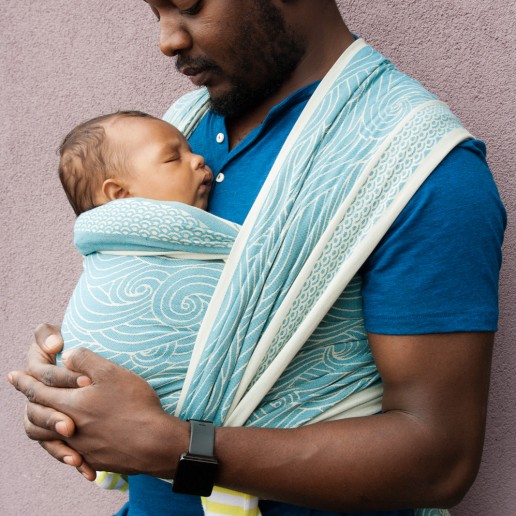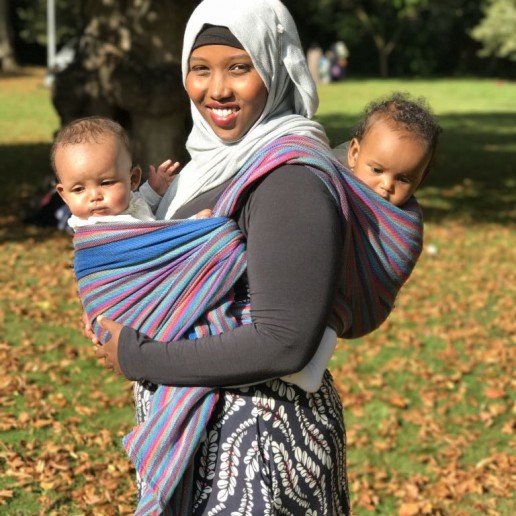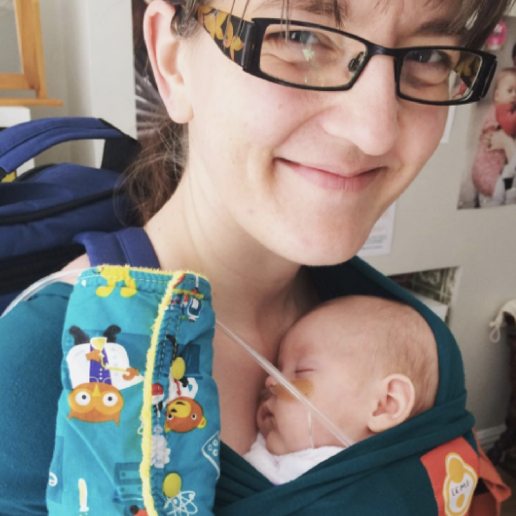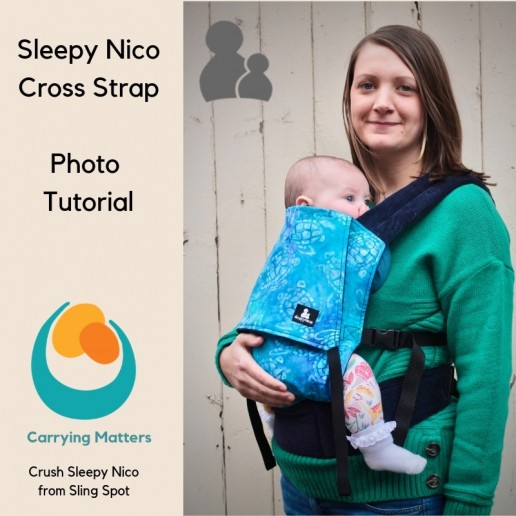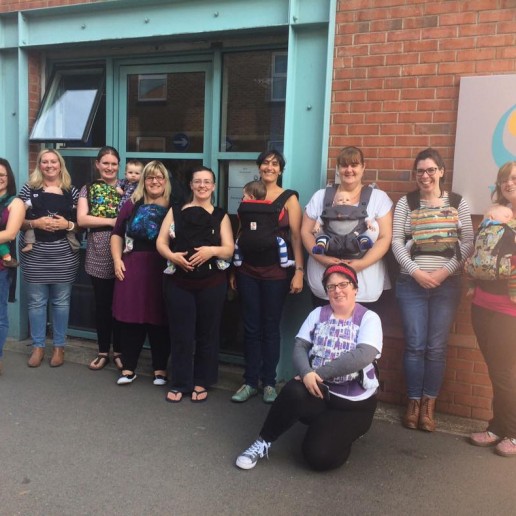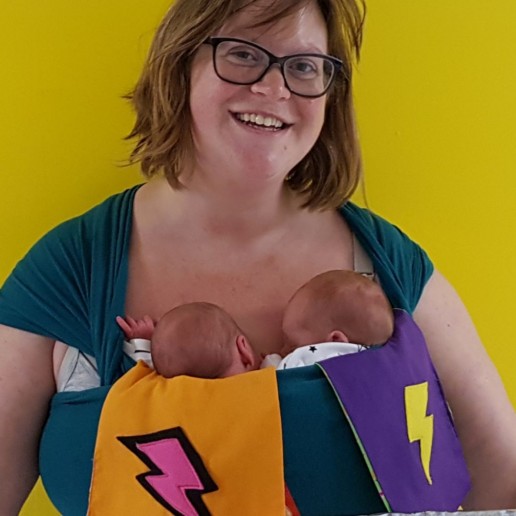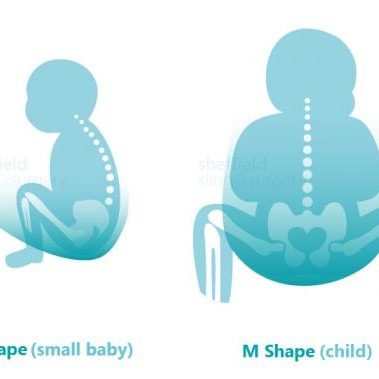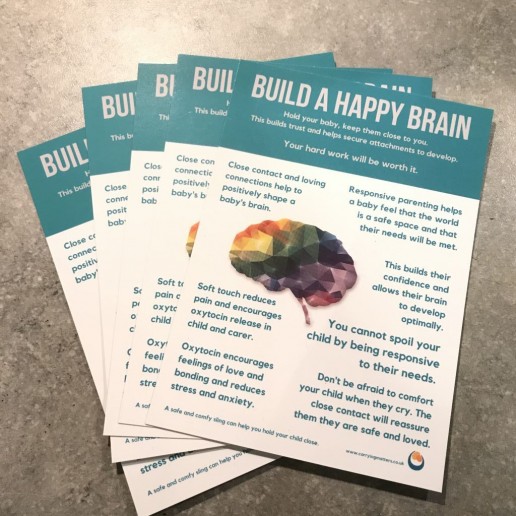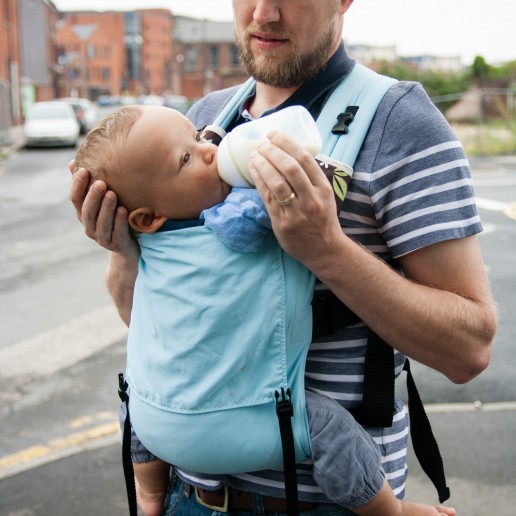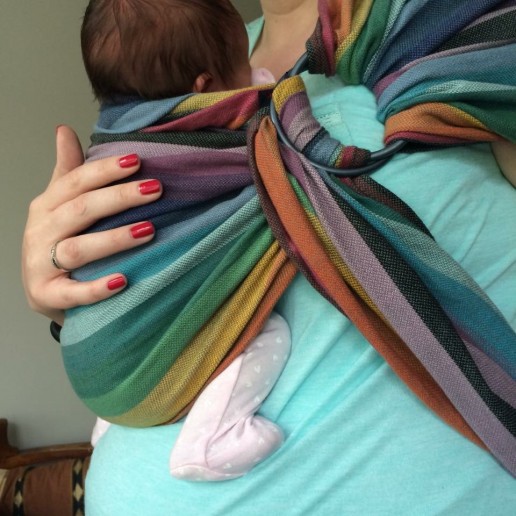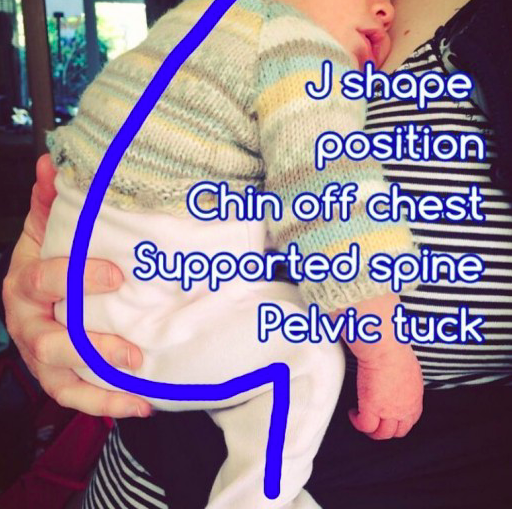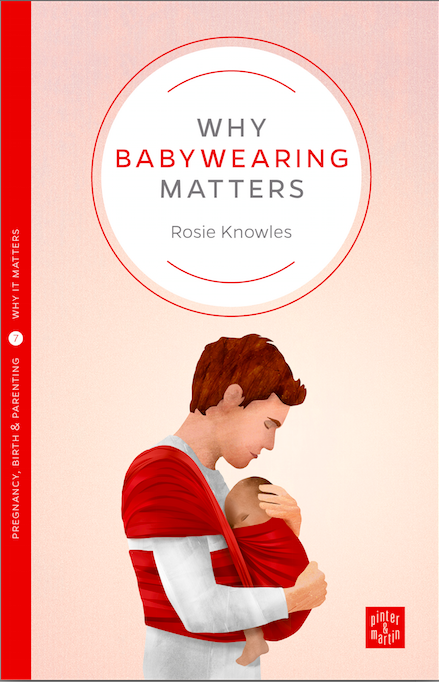Do Slings Create Clingy Children?
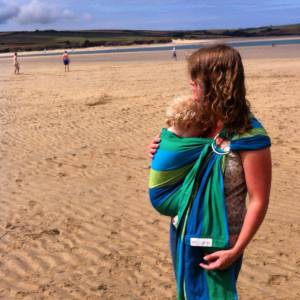
Do slings create clingy children?
Many parents worry that by carrying their baby in a sling, that they are going to create a “clingy child” who won’t be put down. There is a lot of pressure from society to "put your baby down", a fear that responding to the cries of a child will somehow spoil them. Many people believe that children need to be trained into early "independence" and that too much love holds a child back. This is very, very incorrect.
It is disconcerting for a babywearing mother who has carried her child frequently from birth to find that he wants to be held much more than his contemporaries, and when the time comes (if it does) for childcare from other individuals, her baby may protest very vigorously and will not allow another adult to look after him.
All too often, at this point, the words “rod for your own back” surface and the use of the sling is blamed for the child’s behaviour, labelled as “clinginess”. People can use this as a reason to reinforce fears that a child has been "ruined" by the cuddles. For a new parent, doubt can creep in; a fear that somehow, somewhere, a wrong choice has been made and a child’s independence has been stunted by keeping them too close.
Watching parents and children struggle to separate can have an influence on bystanders; encouraging them to think that sling use is more trouble than it is worth. They are wrong.
 Secure Attachment Matters
Secure Attachment Matters
It would be worth at this point, to briefly recap the value of close bonding and secure attachment. Close contact that began at birth and has continued uninterrupted will have initiated, facilitated and consolidated a positive bonding process (mediated by oxytocin).
Such children are likely to have secure, positive attachments to their primary caregivers, which is essential to their physical and psychological health. This is how to build a happy brain; responsive parenting. Children who know their own value and have a rock-solid foundational experience of having their basic needs met, will have trust and confidence in the loving adult relationships around them. This builds resilience, a vital tool to help children thrive despite adversity.
When it is biologically appropriate, they will be more able to turn to independent play as they know and trust their mother is there, even if out of sight; she will not abandon them, she has consistently always come back. As they grow older (towards their first birthday), and begin to develop more co-ordination and independence in movement under their own steam, they will have the underlying security to roam further and further freely. This takes time to develop, and individual personalities play an important part in this.
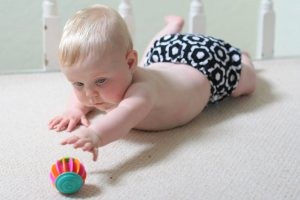
With this natural, biological change and development in their bodies, they will also demand less frequent contact, less frequent feeding, and begin to expand their horizons. This is often the point at which carried babies begin to want to be carried less; to reach for the floor where they can explore, and investigate the world around them. They may even begin to refuse the sling from time to time, often to the carrying parent’s chagrin!
Modern society expects children to become independent individuals extremely young, praising and rewarding those first shuffles forwards, first crawls and first steps, and being quick to criticise or discourage behaviour that demonstrates need. However, it is normal for babies to express their needs, such biologically appropriate behaviour should not be “trained out of them”.
If a child has been carried in arms or a sling from birth and has strong, secure bonds with his caregivers, it is entirely normal for him to expect support from these caregivers in the way he has always experienced it, whenever he asks for it. The neural connections in his growing brain have been solidly reinforced over and over again. It is also normal for him to protest when he is removed from his trusted habitat and asked to accept different caregivers he may not know. This child is not “clingy” in the sense our society means it; it simply means he is habituated to the close contact he has enjoyed all his life, just as his ancestors were; and such close contact is normal for human babies.
With the natural progression of his emotional and psychological development, as well as the growth of his physical skills and strength, his needs will change. Until that stage is reached, a child will expect continuity of care and for things to remain unchanged. The eight month to twelve month period is often when children experience separation anxiety and often coincides with things like parental return to work, introduction of new spaces and places, and of course the sling will play a part in providing reassurance, until a child is ready to move on. It is a safe space, rather than being the root of any “clinginess”.
In our society, babies are carried much less and put down a lot more than they used to be. Some fairly recent British data in 2000 (Baildam et al 2000) suggests that mothers spent an average of just 61 minutes in 24 hours simply holding their sleeping or crying six week old child. This figure was only 17 minutes when the child reached one year old.

When feeding contact was added to the data, 6 week old infants spent an average of 3hrs 27minutes out of 24hrs in contact with their mothers, and 2hrs 23minutes at one year old. Given the trends in current mainstream society, this is likely to have declined further.
For many babies, their parent’s body has never been their primary habitat, their early communication attempts were never met positively, and for some, their bonding may be less secure and demonstrate more insecure or ambivalent patterns. Earlier “separation” may have been gained, but at some cost to future mental health.
Don't be afraid to hold your unhappy baby or to use a sling if they want to be close to you (it means you can be hands-free while you meet their needs). It is always worth building secure attachment relationships. Your baby's babyhood does not last; soon they will no longer need you in the same way, build that solid foundation while you can!
Normal Independence
So, when does normal, biological independence for the human child develop fully when allowed to proceed at its own pace? Well, personality plays a part in this; a single family may have very different children who have been parented the same way and yet have different needs and develop confident independence at different times. Generally, however, anthropological studies would suggest that full independence would occur when a child has completely self-weaned from breastfeeding and bed-sharing, no longer requests frequent in-arms carrying, being able to reliably move from place to place unaided, and able to verbally communicate effectively; usually around age three for carrying (even only occasionally, in piggy back form). Breastfeeding and bed-sharing often continues much longer in more traditional societies.
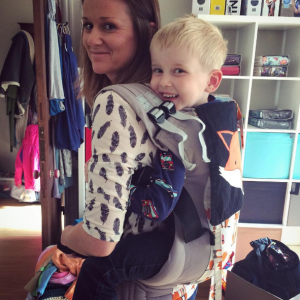
This is much, much later than the socioeconomic model many of us live in. Children are incredibly adaptive, and as there is so much technology available and so much societal pressure to encourage this early separation, this often means that babies can and do learn to need their parent less than they normally would at their current age.
They can learn to not to raise their arms or cry for contact, they can learn to stop asking for breastmilk, and they can learn to sleep alone, however they may be missing out on much of the opportunity for emotional and psychological growth in these crucial formative years. This is the current societal norm; to put babies down rather than hold them close.
So it is no surprise when a parent chooses a more instinctive and natural means of rearing their child, that clashes develop with other parents and older generations who have simply done what the culture around them does and did before them. Why change things?
Grandparents may feel rejected if they feel their own child has chosen to parent differently from them; gentle discussion about current research and new understanding of child development and tactful understanding can go a long way in resolving such conflicts.
Many families will feel they have little chance to spend as much time with their children as they would wish due to work pressures; regret or resentment about this may manifest itself as criticism of others who are able to care for their children in a different way. They may not know there are comfy slings for older children; would it be worth visiting the local sling library?
Sleeping in Slings
People often worry that their babies will only ever sleep in a sling or resting on them. This is the natural, normal place for a child to sleep, in the haven of his parent’s secure provision. A baby falls asleep when he feels warm, safe and loved; it is no surprise that babies love to sleep in their parents’ arms; and as we have discussed, as they grow, their need for this will gradually decline.
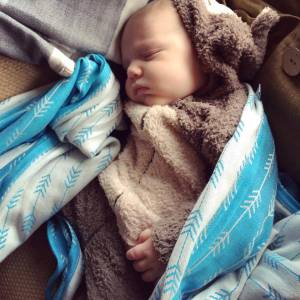
If you have the kind of life that cannot allow a child’s sleep physiology (or accepting non-parental child-care etc) to mature at its natural pace, then it would be wise to ensure that your baby is well used to happily and easily and trustingly settling to sleep in different locations; or well used to care from other trusted adults and this will be easier if he has the underlying attachment foundations and parents who respond to his need as it arises; he will trust them that the places they lay him to sleep are secure, once he is a little older with the psychological maturity to accept this.
Summary
In summary; slings will not make clingy children; your child is demonstrating normal human infant behaviour, and has had a very positive start to life with a securely attached foundation to build on. All children eventually learn to feed themselves, settle themselves to sleep, walk unaided and accept care from other adults; some learn it sooner than others, but they do all learn it, and as parents, it is our responsibility to choose a method of childrearing that feels right to us and is going to give our children the best start in life possible in the circumstances we live in.
References
Baildam, E. M., Hillier, V. F., Menon, S., Bannister, R. P., Bamford, F. N., Moore, W. M. O., and Ward, B. S. (2000). Attention to infants in the first year. Child: Care, Health and Development, 26:199–216.
Carrying Matters - all about babywearing safety, a guide to slings, and why connection matters
Welcome to the Carrying Matters website, run by the award-winning Dr Rosie Knowles.
It is important to support caregivers as they build a happy brain for their children. Soft touch and loving connections play a vital role in this. There are so many benefits of babywearing, which can be explored in this site. Babywearing safety matters; my guide to slings and my commitment to sling education will help parents and those who support them feel confident with sling use at every age.
Listen to Rosie talking about the 4th Trimester period in a new family’s life.
Search my website here
The positive effects of soft touch, close loving contact, and meaningful connections are enormous, and investment early on in family life is well worth it. Holding and carrying is connection; it matters to children, their carers, and society. The close contact helps to build a happy brain, and creates the relationships that buffer against adversity and promote resilience and long term positive health outcomes. It also helps mothers to survive the “4th Trimester” period and the months and years ahead. Here you can find everything you need to know about how to carry your baby safely and well, why babywearing is so normal and useful, how to choose a baby carrier, and help for all sorts of circumstances.
This page is run by Rosie Knowles, the author of the book Why Babywearing Matters (you can get a signed copy here). She is a GP in Sheffield, a carrying advocate and babywearing expert. She is passionate about supporting parents and carers to be close to their children; holding, soft touch and carrying matters in so many ways.
Recent Blog Posts
- Arms In or Out?
- Journeys to Recovery?
- Carrying a child with congenital heart disease, Abbie’s story
- Adversity and connectedness in the early months
- Parenting Criticism
- The importance of soft touch for infant development
- Babywearing in the time of Coronavirus
- “Babywearing for All”- helpful or harmful?
- Carrying with a weakened pelvic floor
- Babywearing and autistic caregivers
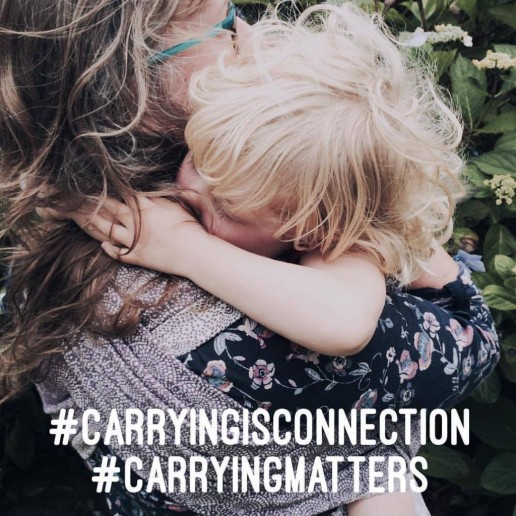
The simple act of connecting with a small person through the medium of loving touch has powerful and long-lasting effects on both child and carer. Babies need to be held close to encourage normal physiological and psychological development, especially in the early months. Every child needs love and connection to grow normally: the absence of responsive and supportive relationships that involve loving physical touch will hamper a child’s potential. Mothers heal best with their babies close to them.
Children thrive when they are carried, resilience builds and families flourish when the needs of all its members are met. Carrying is connection; carrying matters!
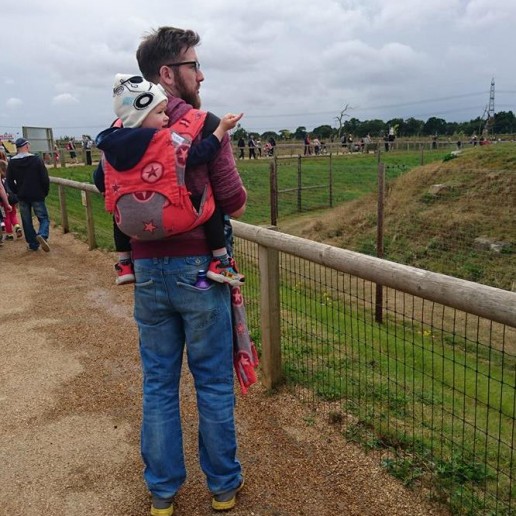
Keeping babies safe in any kind of baby sling or baby carrier is of paramount importance. The first most vital issue is to ensure that baby’s airway is open and unobstructed, with chin off the chest and the ribcage well supported. Babies’ temperatures should be considered too; they are surprisingly warm, and overheating can cause problems. Read more about sling safety here.
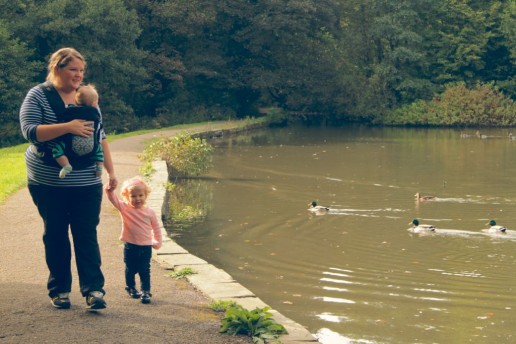
Secure attachment to other people is vital to human health and wellness; we thrive on relationship, on belonging. Such healthy attachments are the bedrock to future positive mental health and enjoyable relationships. However, 40% of children lack secure attachments, and are significantly disadvantaged. Encouraging carers to spend more time in close physical contact with their children is one way to improve children’s resilience and support everyone’s mental health. Soft touch is an essential part of building a happy brain and positive bonds that last a lifetime.
Read more about the importance of building secure attachments here, and how encouraging close physical contact can help build the resilience that children need to thrive despite adversity.
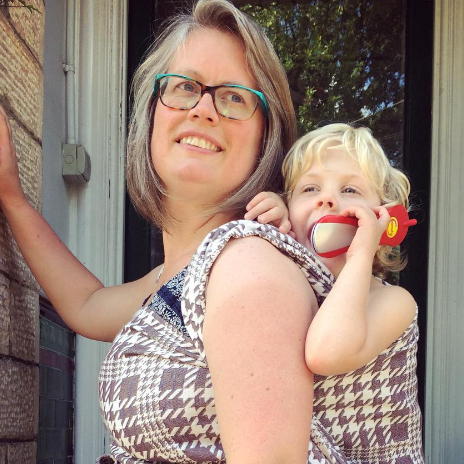
About Rosie
“I am a mum of 2, a family doctor in the UK (a GP), and a passionate advocate of building secure attachment relationships between children and their carers, due to the long lasting effects this has on future health. I believe that carrying children plays a large part in building such bonds, be it in arms or in a sling. With Carrying Matters, I focus on providing accessible information and education about this for parents and the professionals who support them. Sling and carrier use is not a new concept at all; but our Westernised society has lost the communal sharing of knowledge. We are no longer surrounded by a community of people who can help us get to grips with parenthood and share the load, so we need support in newer and more structured ways. This is what I do; empower people to keep their children close in a safe and positive way.”
Her book, “Why Babywearing Matters”, was published by Pinter and Martin in May 2016. It has been translated into several languages over recent years. She has written for a wide range of publications, including Juno Magazine, and has a regular freelance blogging role for Boba (links can be found in the Blog section).
She founded the Sling Pages, an independent website listing all the known sling professional resources in the UK and Eire, and the Building Bonds Project, a CIC supporting families in times of crisis and financial hardship to access good quality and safe carriers.
She is a practising GP in the UK with a particular interest in holistic medicine as well as children and women’s health and medical ethics. She began her career in hospital medicine but switched to general practice because of its flexibility with family life and the opportunities it presents to be more closely involved with communities, from cradle to grave. She has two children of her own, who have both been carried happily, and a husband who works alongside her at their local Sheffield premises. Rosie founded the Sheffield Sling Surgery and Library in 2013 and has supported thousands of parents across the South Yorkshire region, helped by a volunteer team of fantastic, committed parents who have found carrying their own children to be life-changing. They all want to help their fellow parents to discover this for themselves!
Rosie has won several awards for her work in this field; the Babywearing International Vijay Owens Babywearing Advocacy Award for Lifetime Achievement in Promoting Babywearing in 2016 and the 2019 Association for Infant Mental Health AIMH (UK) award in recognition of those who have highlighted and promoted infant mental health in their discipline.
Rosie developed the “Fourth Trimester” sling meet model with her colleague Lindsay Snow, focusing on the needs of parents with bumps to four months. Families often struggle to deal with the biological needs of their new baby within the confined structures and expectations of modern society, which can be damaging to the building of secure attachments.
The needs of baby and caregivers are both important, as is the mental health and happiness of the whole family. Human beings were not designed to live in small isolated units but in supportive social groupings.
Holding babies close (in arms or in a soft sling) can be a very useful tool for families struggling with mental health disorders, pre, peri or postnatally. The close contact and the soft touch has biochemical hormonal effects that can help to reduce anxiety, improve feelings of wellbeing and connection, as well as lifting the mood. Read more about this here.
You can find your local sling library or sling meet by searching the Sling Pages resource, get in touch with them!
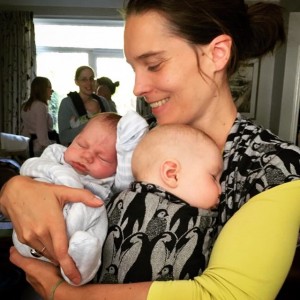
Using a sling (carrier) helps parents to keep their child as close as their biology needs, while also being able to function as adults in a demanding and inflexible world.
Rosie trains carrying advocates and sling/carrier peer supporters and sling consultants, running courses in Sheffield and nearby. She has trained health care professionals, sling librarians, fitness course leaders and interested parents. See more here.
She lectures at conferences and gatherings around the UK and Europe about a range of topics, all related to early years parenting and how slings and carriers can make a huge difference to babies, their carers and to society.
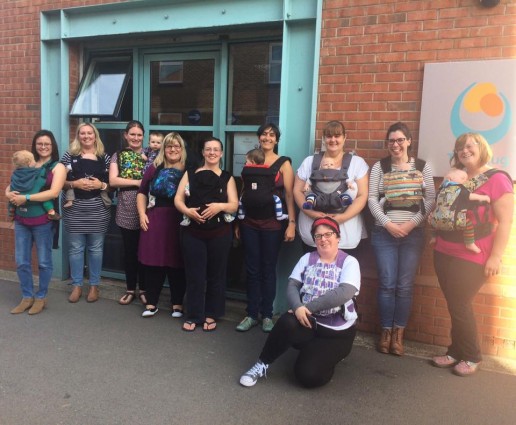
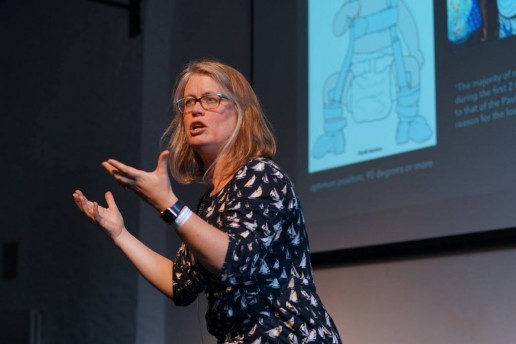
“I’d highly recommend any enthusiast to attend this course. I found it thoroughly enjoyable and look forward to being able to use this new knowledge to help more parents discover the benefits of babywearing, as I have.”
“Rosie is a wonderful teacher, very clear and good at explaining. I felt she was well educated in her field and able to answer any question thrown at her. Also very friendly which made me feel comfortable and relaxed in a learning environment and confident to ask questions.”

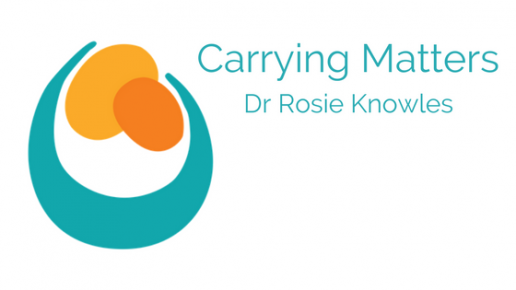
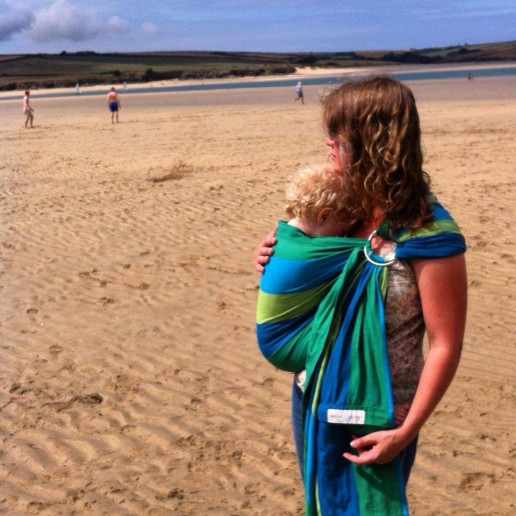
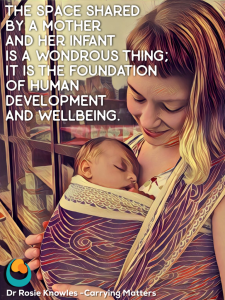 Secure Attachment Matters
Secure Attachment Matters